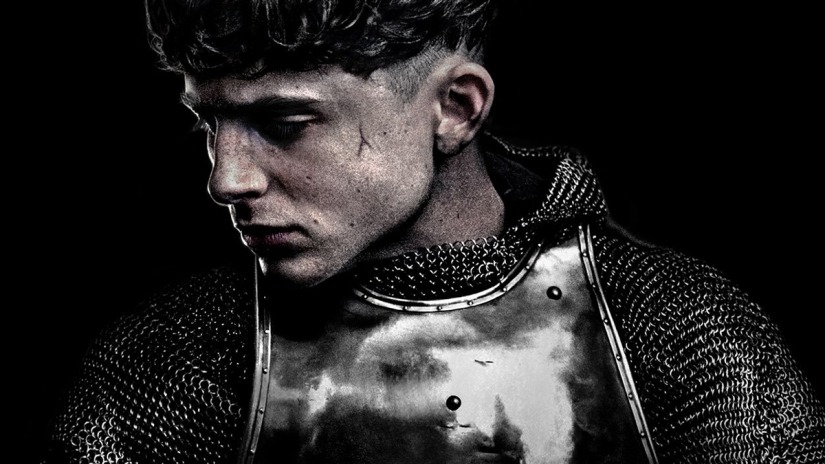
The King is a new Netflix film, directed by David Michôd, based loosely on Shakespeare’s Henriad and staring Timothée Chalamet as the Prince of Wales “Hal,” soon to be Legendary Henry V, Joel Edgerton as Sir John Falstaff and Robert Pattinson as the Dauphine of France. It is also a film that I have very mixed feeling s about.
On the face of it, you have a well shot, well-acted (bar Pattison’s French accent) and quit visceral, if somewhat stylistic, film that for the most part is enjoyable to watch and flows quite well. Chalamet’s Henry V is stoic but yet intense, coming across as the archetypal Shakespearian Hero and for the most part supporting rolls follow suit.
Where my issue comes in though, is the distinct lack of historic bedrock. Yes, I know its based on Shakespeare and I know Sir John Falstaff doesn’t exist BUT:
- Its loosely based on Shakespeare and has little or no Shakespearean language or lines.
- Just because it is based on Shakespeare, or any other writer for that matter, why does it have ignore historical accuracy?
If you have a film like Inglorious Bastards, which for all intents and purposes is so brazen about its lack of care for historical accuracy that they actually assassinate Hitler, I can accept that as its not touting itself as an historical epic but a World War 2 themed Action film. But there are so many “historical” films out there that play so loose with the source material that, apart from some historical figures, you couldn’t really call it an historic at all: generally anything with Mel Gibson in it (Braveheart, The Patriot etc)and travesties like U-571 to name a few.
In the case of “the King” the main issues are the 3 main “engagements” / battles and Henry 5th character.
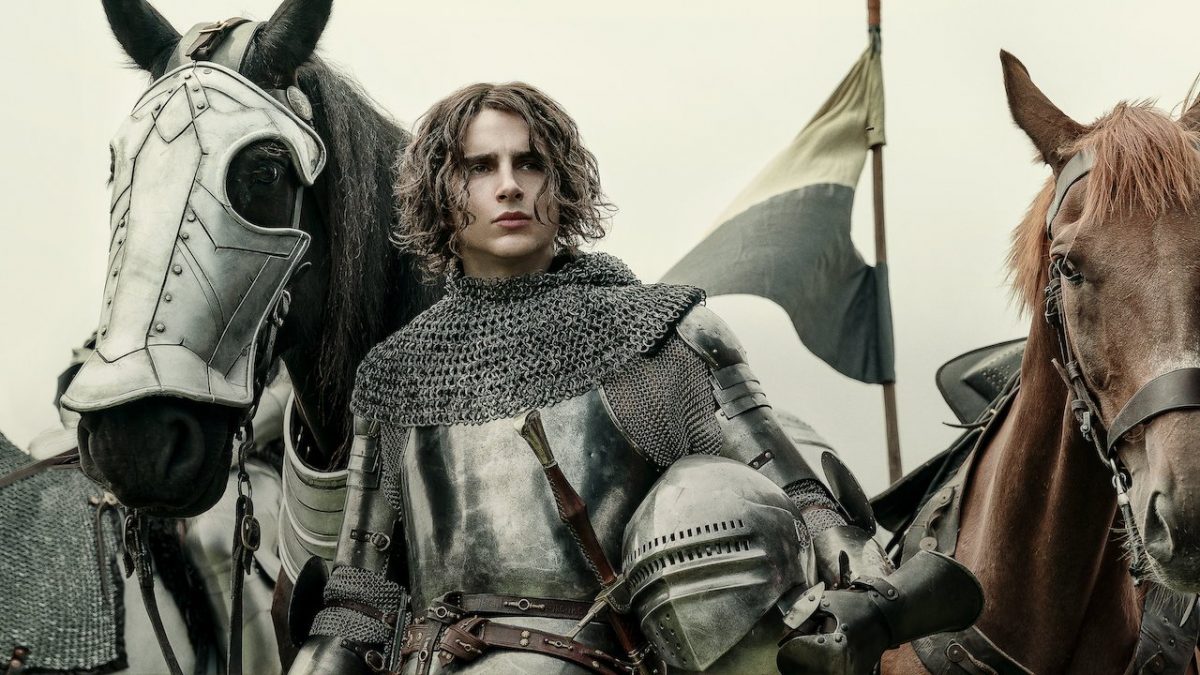
- The film depicts Henry / “Hal” as a brave but yet reluctant leader, who wants peace and on 2 occasions calls out his opponent in single combat to spare the lives of his men and has no real interest in the throne of England. This was just not the case.Henry the V may have been a brave King and was no doubt an accomplished leader but he wasn’t as estranged from his father, Henry IV, as is depicted. In fact, one of the reasons the Percy’s rebelled against King Henry was because of the favour given to Henry the Prince of Walesh over them. On top of this, Henry didn’t offer single combat to save the lives of his men in either Shrewsbury or Agincourt and his attack on France wasn’t one of reluctance but one of aggression designed to concrete his claim to the French thrown.
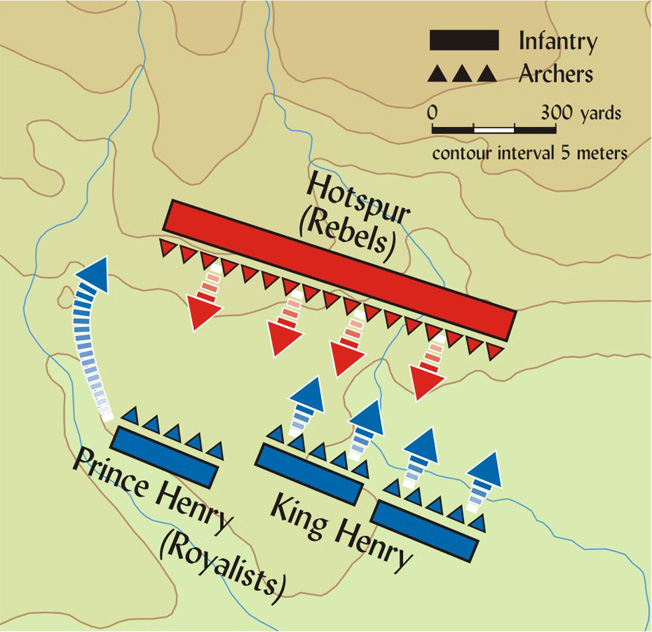
- The Battle of Shrewsbury isn’t depicted in the film but instead shows a reluctant ‘Hal’ coming to the aid of his brother, sent in his fathers stead, due to illness, and offering Henry Percy (Hotspur) a challenge of single combat to determine the day. Where in ‘Hal’ is victorious and stabs Hotspur in the neck; winning the battle before it even begins. Again this was not the case.Henry the IV was present at the battle and so was the Prince of Wales (soon to be Henry V) Hotspur was killed either by an arrow or struck down by a sword after a charge against henry the IV. Henry himself was hit in the face with an arrow and was left with a permanent scar. With the death of Hotspur the rebellion was over; despite the rebels inflicting more casualties.
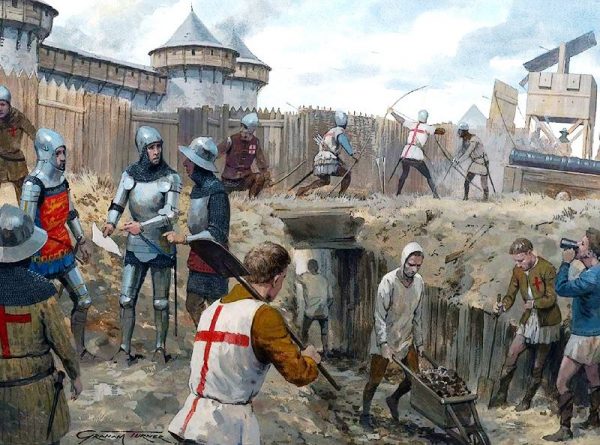
- The Siege of Harfleur is shown as a mere pit stop before the main engagement of Agincourt but with nearly a third of his men dying to dysentery, this, as well the threat of a large French army forced him to retreat towards Calais; the English also used cannon (guns) to batter down the walls, not just trebuchets.
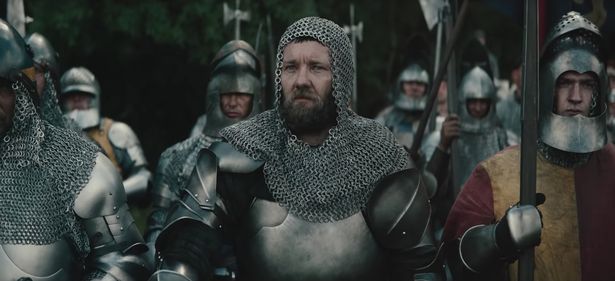
- The Battle of Agincourt in the film, though quite well shot and incorporating the mud and even not over playing the effectiveness of the Long bow still played loose with the history of the event. The Dauphine was not present and did not get killed by English archers as he floundered in the mud but died of dysentery after. The order to kill the prisoners after the battle was one Henry made but was based on an attack to their rear by French cavalry on the baggage train and the belief that they didn’t have enough numbers to secure the prisoners; it was not out of anger and higher ranking nobles were spared for ransom .In the battle proper, the film shows the men at arms being lead forward by Falstaff to encourage a charge by the French cavalry and the rest of the army is placed hidden in the trees to attack from the flanks. In reality the entire army moved forward to put the long bows in range, their fire encouraging the charge by the cavalry which attacked the archers and was beaten off, thanks to the stakes placed in the ground before them.
On top of this as much as it has been proven that the long bows arrows could not penetrate full plate armour in the front, it could hit and penetrate weaker areas and more importantly kill horses. Additionally the French would have been wearing padded surcoats over their armour, which would have helped English arrows to stay in place and therefore hindered movement. There is also the moral effect of a constant barrage, from the flanks, injuring and slowing down your advance, on ground that was now all but a quagmire.
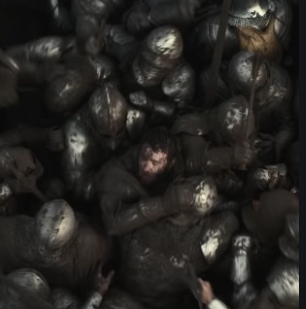
The biggest killer of the battle though was the weight of numbers on the French side. All pushing forward to avoid arrows and engage with the English and in doing so, crushing their comrades underfoot and or just suffocating them in the mud something that is touched upon but not really encouraged; I guess it doesn’t make good tv.
As a film, on its own, The King is an enjoyable watch I will admit and it is very easy to get carried away with movies like this, but without historical integrity it just becomes another national propaganda film and that bothers me. I fully accept that some artistic licence can be used to make a movie more engaging but when you rewrite history, for this sake of this, it just seems lazy and irresponsible to me.
Why you ask? Well we live in a fast food society where in a lot of people just want to be fed information true or false and whereas some might watch a film, then look up the history behind it, many will simply take what a film says as verbatim and to them that’s the truth in all its romanticised glory. This leads to a section of society who would sooner believe the movies than reality and for me this is an issue. Belief over fact is a very dangerous thing and the longer “beliefs” take route the harder it is to persuade someone otherwise and the hard it is for us as a society to move forward.
In short, enjoy the film if you haven’t seen it yet but read up on the actual events after and get you history from the historians not from Hollywood.


